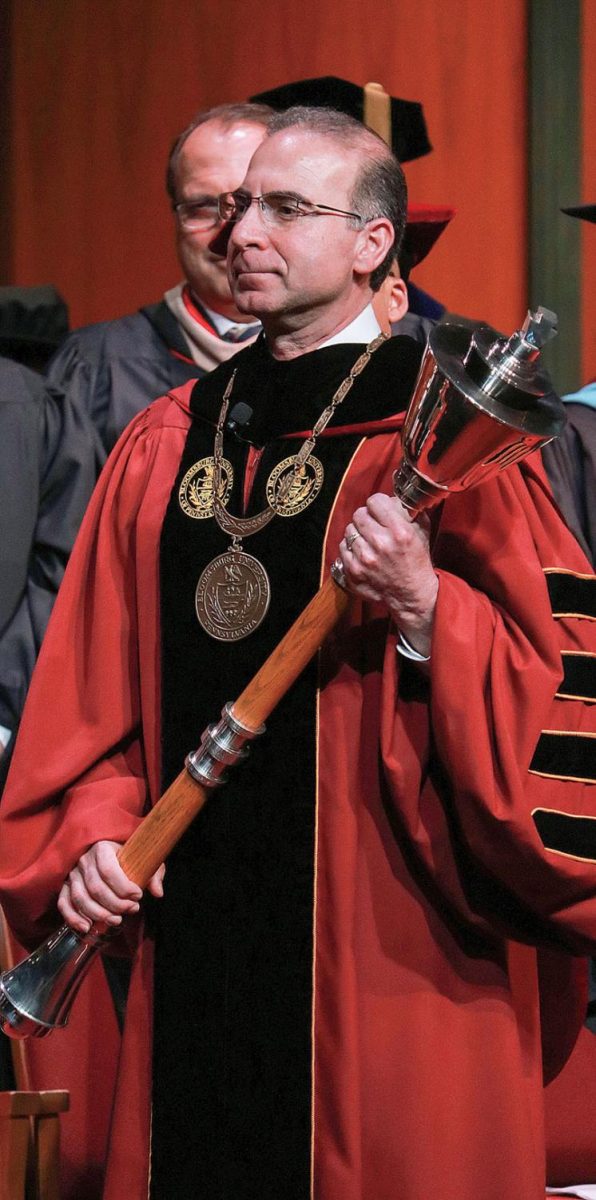
Scarlett Johansson puts on an intriguing performance as Major in the American take on “Ghost in the Shell.”

Major Motoko Kusanagi, a cyber-enhanced human battles technological terrorism in both the “Ghost in the Shell” anime and the visually stunning new film.
What makes a movie great? Is it the action? Romantic intrigue? Dramatic plot? Character development? Or is it, perhaps, all of these things? Whatever a viewer’s opinions on the matter, they’ll likely find “Ghost in the Shell” to be an interesting watch, but is it worth the ticket’s price?
The plot centers around the Japanese protagonist known as “Major,” depicted by the actress Scarlett Johansson, and implements a variety of deeply philosophical themes. Without disclosing any key spoilers, Major is a cybernetic being with a human brain. Her quest focuses on unearthed betrayals, a journey to understand what it means to be human and her discovery of a missing past.
The film adaptation of the anime shares the same name as its counterpart, and questions the sanctity of human morality and the boundaries between man and machine. Essentially, despite the movie’s intriguing backstory and stimulating philosophical inquiry, there’s a decent amount of disparity between the original 1995 anime and the 2017 film.
Truly, when examining the two works, it seems as though they are almost entirely separate entities, with only some silhouetted similarities. The movie acts as an entirely new “shell” for the “ghost,” which is the philosophical and thematic significance of the original work. Although there are certain scenes that bear a striking resemblance, and even an exactness, to the original work, the core theme is slightly reimagined.
One very obvious and striking difference is undoubtedly the soundtrack. The original work’s soundtrack, designed and implemented by Kenji Kawai, permits a sense of hidden truths. It allows the viewer of the original work to feel and breathe a hauntingly inaudible, yet resonating atmosphere that absolutely contributes to the work as a whole.
In the 2017 rendition of the anime, the film’s soundtrack, reimagined by Clint Mansell, has its similarities, but is altogether a very different thing. There do seem to be certain parts in the film in which the soundtrack seems to play an integral role, but it cannot compete with the original. That ‘haunting’ sensation that the original soundtrack provides is an important part that lends to the philosophical and inwardly-questioning nature of the work.
With this downgraded so that the soundtrack can feel more ‘modern’ and ‘fast-paced’ than it does in the anime, the whole of the atmosphere changes. For the better or worse is completely objective, but it would’ve done well to maintain a closer relationship throughout more of the film, thereby enabling that sense of inwardness. Either way, both soundtracks are actually very beautiful and intricate in their own rights.
Even so, the acting was superb and brought Scarlett Johansson into the limelight once again. Her skills permitted her to represent Major in a unique and multidimensional perspective that adds to the 2017 film’s ability to engage the audience. There were certainly some adaptations and recreations of these characters, but their overall and integral selves seemed to be fairly unaltered in many respects.
Despite all of this, the film had a sense of feeling rushed, not quality-wise, but as though too much unnecessary information was stuffed into the film. It can easily leave a viewer who is unaware of this universe and its technicalities confused and questioning some aspects of the film and their similarities to a “Deus Ex Machina” scheme. It seems as though some outlandish interpretations were forcibly added to the film, despite the relative realism that was in the anime. Viewers should be understanding of that sense of “rush” when dealing with adaptations, but the anime was a movie as well, so that feeling can’t be accepted as easily, unfortunately.
The film adaptation of “Ghost in the Shell” is certainly a wonderful film for those who are accustomed to such works, but can be a bit of a disappointment for “hardcore” anime fans. However, this doesn’t mean that the film loses any value. It’s just too hard to compete with ideals and self-imposed expectations that come with so many adaptations of novels, comics or anime.
For those who can enjoy this film as a separate engagement from the anime and find themselves accustomed to this sort of plot, the film is a pretty good watch. For those who wanted a carbon-copy of the original anime, it simply doesn’t happen (so viewers like that might want to find solace in the original work). It’s highly recommended for people who accept adaptations as innovations on predesigned ideas and permit reimagined scenes and stories. “Ghost in the Shell” is an intriguing story with highly applicable themes and intense philosophical debate.
















